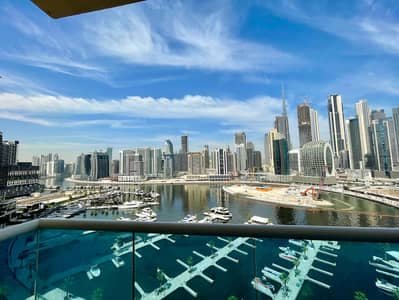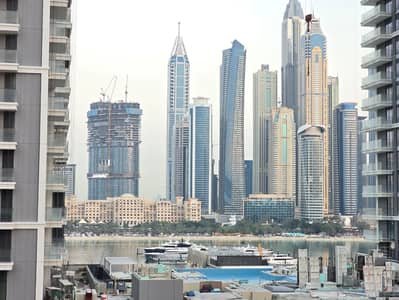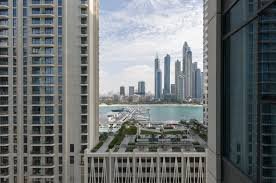A growing tension between income and expenses
Dubai, once known as a tax-free paradise where salaries were high and life was luxurious, is facing a financial paradox. While rent prices are shooting up across the city, salaries have been largely stagnant for several years now. It’s a frustrating truth for many residents, who feel like they’re working harder but taking home less in real terms.
From young professionals starting out to families who’ve called Dubai home for years, everyone is feeling the pressure. Rent, which used to take up a manageable portion of income, is now eating into savings, leisure, and even essentials. But why is this happening? And more importantly, is there a way forward?


The real estate boom that caught salaries off guard
Dubai’s property market has been booming again post-pandemic. With international interest in the city at an all-time high, real estate has become a hot commodity. Investors from around the globe are snapping up properties, and short-term rentals like holiday homes and serviced apartments are in high demand.

This demand has pushed residential rents higher—sometimes by 20% to 40% in just one year. But employers haven’t matched that pace. Salary adjustments, if they happen at all, are often marginal. Companies are still cautious, recovering from global disruptions and inflation concerns. The result? A widening gap between what people earn and what they pay to live.
The impact on everyday residents
For many residents, the rent increases feel personal. A couple renting a one-bedroom apartment in a community like Jumeirah Village Circle might suddenly find their rent going from AED 55,000 to AED 75,000 a year. If their salary hasn’t increased accordingly, that extra AED 20,000 has to come from somewhere—usually savings, or by cutting back on other lifestyle elements.
Parents are reconsidering school choices, professionals are skipping vacations, and some are even contemplating leaving Dubai altogether in search of more balanced living. What was once a land of opportunity is starting to feel financially suffocating for the average earner.
Why are companies slow to raise pay?
Businesses in Dubai, particularly in sectors like media, education, retail, and hospitality, operate on tight margins. While top-tier professionals in tech, finance, or multinational firms might still see annual bonuses or salary adjustments, the average white-collar worker hasn’t seen significant wage growth in years.
There’s also a high supply of talent. Dubai’s popularity means there are always new people ready to accept the same job for the same or even lower pay. For employers, that means less urgency to revise pay structures, especially when demand is high and retention is not a burning issue.
The ‘golden visa’ and the shifting landscape
The introduction of long-term visas has encouraged more expats to invest in property and settle down long term. While this is a great move for financial security and residency stability, it has also created more demand in mid-tier and luxury housing segments.

Landlords, seeing this demand, have capitalised by increasing rents. Areas that were once considered budget-friendly are now pushing the boundaries of affordability. This shift is especially tough for those who’ve lived in Dubai for years and now feel priced out of their own neighborhoods.
Shared spaces, downsizing and lifestyle changes
One of the most visible changes has been in how people choose to live. The rise of co-living spaces, shared accommodations, and roommates among working professionals is no longer limited to fresh graduates or bachelors. Even families are opting for smaller units or moving further away from the city centre to manage costs.
This adjustment, while practical, does impact quality of life. Commutes get longer. Personal space becomes a luxury. Dining out, fitness memberships, weekend trips—all those things that made life in Dubai feel glamorous—are being re-evaluated or sacrificed.
What does the future hold?
There’s cautious optimism that salaries will catch up eventually. As companies regain footing and competition for skilled talent intensifies, there may be more pressure to offer better compensation. Some firms are already offering flexible work options, bonuses, and housing allowances as indirect forms of salary relief.

But until then, the onus falls on residents to adapt, budget better, and explore all available avenues to stretch their earnings. Some are switching jobs to chase higher pay, others are upskilling to move into better-paying industries. Side hustles, freelancing, and digital gigs are becoming increasingly popular for those trying to bridge the income gap.
Government initiatives and regulation hope
The Dubai government has shown an interest in creating balance in the housing market. Rental caps, digital rental dispute resolution systems, and transparency tools like the RERA Rental Index are steps in the right direction. However, implementation and enforcement are still catching up to the reality on the ground.
Residents hope for more decisive interventions—like stricter caps on annual rent hikes or incentives for employers to increase salaries in line with the cost of living. If both sides of the equation—income and housing—can be addressed, Dubai could return to being the ideal city it once promised to be.
The emotional toll of financial pressure
Beyond the numbers, the rising cost of living in the face of flat salaries is also an emotional challenge. Financial anxiety is growing, especially among mid-career professionals who feel stuck. Many came to Dubai chasing dreams of financial freedom, but now find themselves working longer hours just to maintain the basics.
There’s a silent frustration building up—one that affects mental health, relationships, and even productivity. When rent becomes your biggest fear each year, it’s hard to plan for the future, save for a home, or feel truly settled.

Making peace with the new reality
Despite the challenges, many residents continue to love the city for its safety, opportunities, cultural diversity, and quality of life. Dubai still offers more than many global cities in terms of lifestyle, growth, and ambition.
But now, that dream needs to be managed more realistically. It’s no longer just about earning well—it’s about spending wisely, planning ahead, and being ready for change. The Dubai of today rewards those who are adaptable, informed, and resilient.
In conclusion
Salaries may not be rising at the pace people want, and rents may feel like they’re spiraling out of control—but Dubai still holds promise. It’s a city constantly reinventing itself. And while the current imbalance between rent and salary is difficult, it’s not unfixable.
The key is awareness, negotiation, and a clear-eyed view of your finances. Whether you’re new to the city or have been here for years, this is the time to reassess, replan, and stay hopeful. Because while the challenges are real, so are the opportunities to rise above them.
Do follow UAE Stories on Instagram















